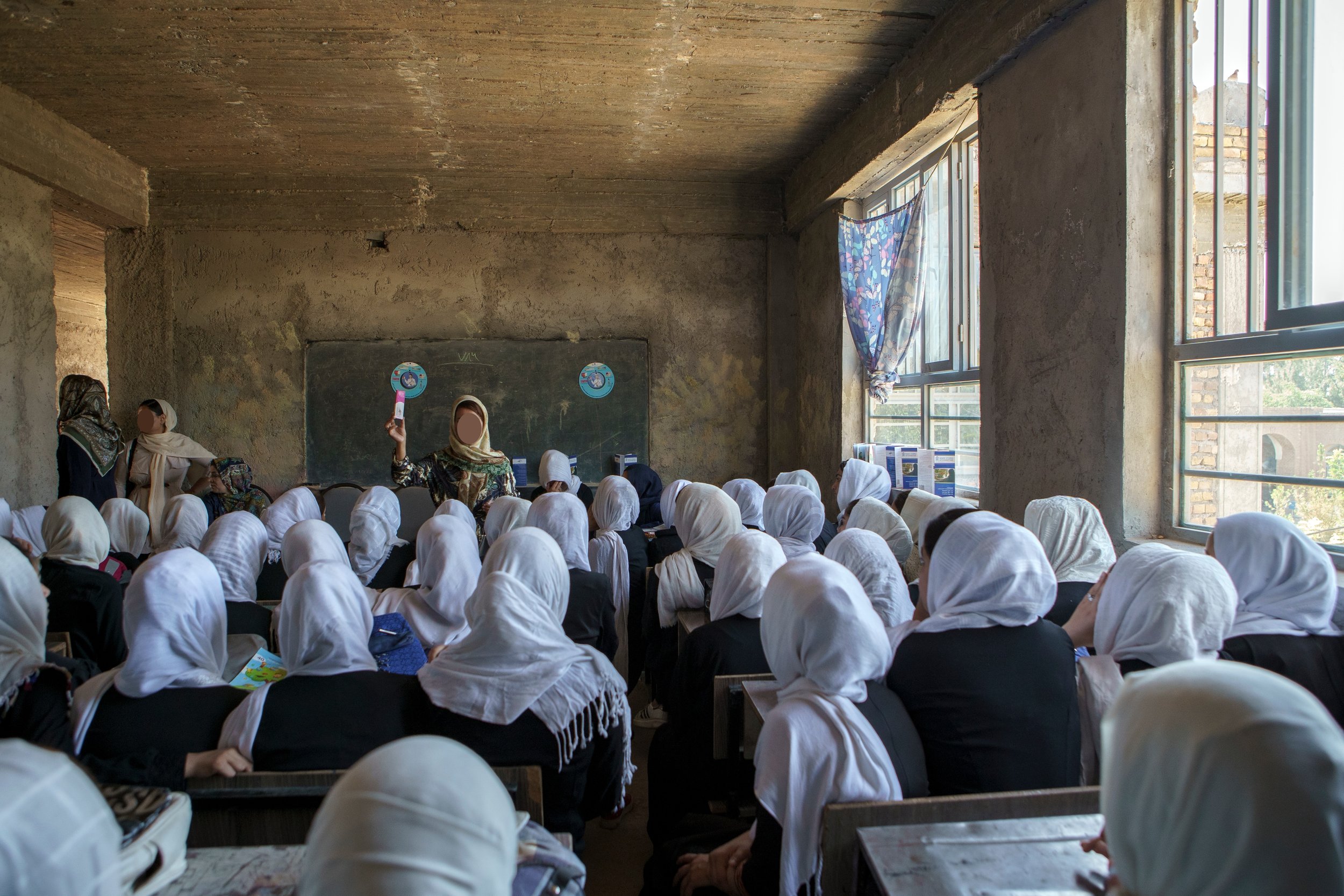Afghanistan: Arrest of girls’ education activist latest example of Taliban repression
Girls school in Afghanistan prior to the Taliban’s takeover. Credit: Shutterstock
Update (26 October 2023): PEN International welcomes reports of Matiullah Wesa’s release after 215 days of arbitrary detention. However, he should never have been detained.
We continue to call for the immediate release of all those who remain detained by the Taliban for their peaceful expression, including PEN member, Zholia Parsi. We also urge the Taliban to immediately cease its efforts to undermine women and girls’ access to education, and to immediately end its repression of women and girls.
PEN International is deeply concerned over reports regarding last week’s arrest of educator and prominent advocate for girls’ education, Matiullah Wesa, and calls for his immediate and unconditional release. Matiullah’s detention is just the latest example of the Taliban’s intolerance towards anyone who challenges its efforts to deny women and girls their right to education.
On 27 March 2023, Matiullah Wesa was arrested by the Taliban after attending prayers at a mosque in Kabul, according to media reports. Videos circulated online show that his home was raided the following day with his library destroyed. In response to Wesa’s arrest, United Nations Special Rapporteur on human rights in Afghanistan, Richard Bennett, noted his alarm and called for his rights to be respected. The United Nations Mission in Afghanistan also sought clarification on Wesa’s whereabouts, which remains unknown at time of writing.
‘The arbitrary arrest of Matiullah Wesa for his selfless work advocating for girls’ education is a shocking example of the Taliban’s contempt towards the rights of women and girls. We call for his immediate and unconditional release, and for the Taliban to cease its appalling assault on women and girls’ right to education’, said Romana Cacchioli, Executive Director of PEN International.
Matiullah Wesa is an educator and a high-profile advocate for girls’ education. In 2009, Wesa established an organisation called Pen Path with his brother, which is dedicated to improving girls’ education and literacy rates for all children in Afghanistan. For over a decade, Matiullah Wesa would travel to regions across Afghanistan with his mobile library, distributing books to children and working to establish libraries and schools in areas blighted by conflict.
Following the Taliban’s return to power in August 2021, Matiullah Wesa continued to travel across the country meeting with tribal leaders to advocate for the reopening of girls’ schools. Just weeks before his arrest, Wesa travelled to Belgium where he met with European officials and advocated for their support of girls’ education in Afghanistan. On 28 March 2023, Abdul Haq Hammad, an official at the Taliban’s Ministry of Information and Culture, defended the decision to arrest Wesa, claiming that his actions were suspicious. Wesa’s arrest comes in the wake of an increasing number of civil society activists and media workers who have been detained in recent months, many of whom have been detained without any public disclosure of their wellbeing or whereabouts.
In 2018, PEN International launched its Women’s Manifesto, which highlights the organisation’s commitment to the rights of women and girls, including ‘full access to quality education for all women and girls and to take and ensuring that women can fully exercise their education rights to read and write’.
PEN International calls for Matiullah Wesa’s immediate and unconditional release, along with all of those who have been detained for their peaceful expression. We urge the Taliban to reverse its restrictive policies, including all measures that undermine women and girls’ access to education, and to immediately end its repression of women and girls.
Background:
Following the Taliban’s seizure of power in August 2021, it has relentlessly sought to systematically undermine the rights of women and girls, erasing their presence from public life. Included among the breathless stream of heavily discriminatory restrictions implemented by the Taliban leadership in recent months is the banning of women and girls from attending secondary school as well as all public and private universities, along with wide-ranging restrictions on their appearance and movement in public settings. As a State party to the International Covenant on Economic, Social and Cultural Rights, the Convention on the Rights of the Child and the Convention on the Elimination of Discrimination Against Women, Afghanistan is obliged to ensure that everyone has access to an education.
The Taliban has also shown complete intolerance to dissenting voices, cracking down with impunity against women who have peacefully protested against these discriminatory measures, with many facing threats, harassment, arbitrary arrest and torture. On 2 February 2023, academic Ismail Mashal was assaulted and detained while he was distributing free books in central Kabul. An outspoken critic of the ban on women and girls’ education, Mashal had previously torn up his academic records during a live broadcast on TOLOnews in protest against the Taliban’s decision to ban women from higher education. Mashal was reportedly released in early March.
For further information please contact Ross Holder, Head of Asia/Pacific Region at PEN International: [email protected]

